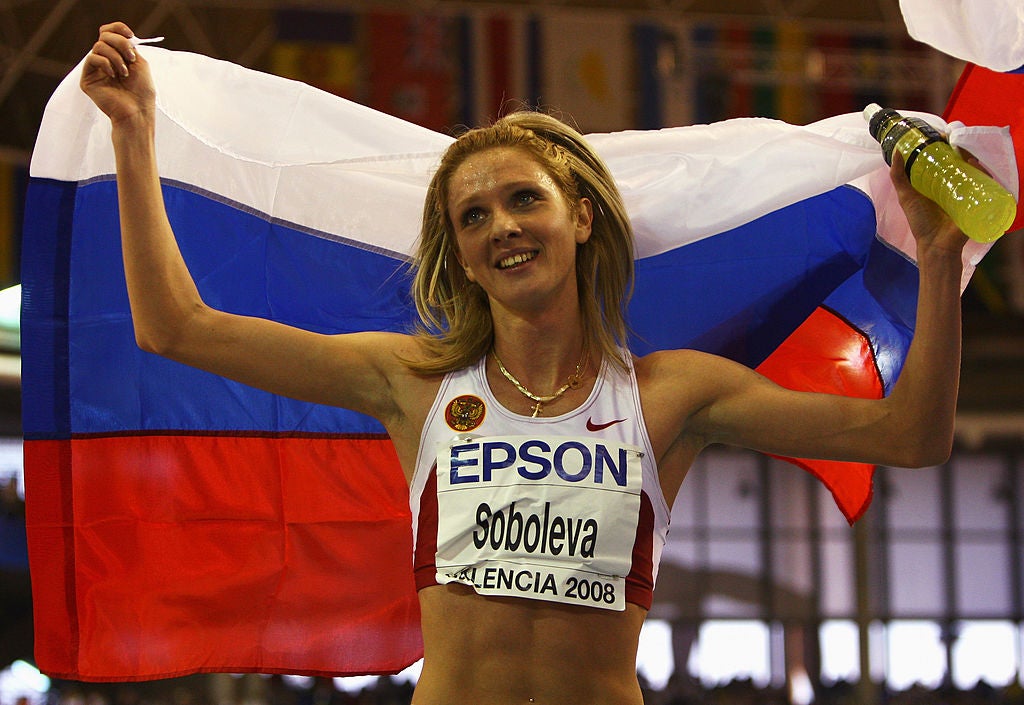Russian former indoor 1,500 metres champion gets eight-year doping ban
The distance runner has been retired for almost a decade but some of her results will be expunged

Your support helps us to tell the story
From reproductive rights to climate change to Big Tech, The Independent is on the ground when the story is developing. Whether it's investigating the financials of Elon Musk's pro-Trump PAC or producing our latest documentary, 'The A Word', which shines a light on the American women fighting for reproductive rights, we know how important it is to parse out the facts from the messaging.
At such a critical moment in US history, we need reporters on the ground. Your donation allows us to keep sending journalists to speak to both sides of the story.
The Independent is trusted by Americans across the entire political spectrum. And unlike many other quality news outlets, we choose not to lock Americans out of our reporting and analysis with paywalls. We believe quality journalism should be available to everyone, paid for by those who can afford it.
Your support makes all the difference.Russia’s former world indoor 1,500 metres champion Yelena Soboleva has been handed an eight-year ban after she violated anti-doping regulations, the Court of Arbitration for Sport (CAS) said on Wednesday.
Soboleva, who set the world indoor record in 2008, had previously received a two-year suspension along with six other leading Russian women athletes ahead of the Beijing Olympics after manipulating their drug samples. She retired in 2013.
“Yelena Soboleva has been found guilty of anti-doping rule violations... and sanctioned with a period of ineligibility of 8 years starting from April 7 2021,” CAS said in a statement.
“All competitive results achieved from 1 May 2011 through the commencement of her period of provisional suspension on 15 December 2016 are disqualified with all of the resulting consequences, including forfeiture of any medals, titles, ranking points, prize and appearance money.”
CAS also partially upheld London 2012 Olympic high jump champion Ivan Ukhov and 2013 high jump world champion Svetlana Shkolina’s appeals against a four-year doping ban.
READ MORE:
Ukhov and Shkolina were among 12 athletes banned in 2019 after being found to have “participated in and/or benefited from anabolic steroid doping programs and benefited from specific protective methods”.
The period of ineligibility for both athletes has now been reduced to two years and nine months starting Feb. 1 2019, ruling them out of this year’s Tokyo Olympics.
Russian sport has been dogged by doping allegations for several years and a 2015 report commissioned by the World Anti-Doping Agency found evidence of mass doping among Russia’s track and field athletes.
Russian athletes are barred from competing at major international events, including the Olympics, under the country’s flag until December 2022 for providing WADA with doctored laboratory data that could have helped identify drug cheats.
Many Russian athletes were sidelined from the past two Olympics and the country was deprived of its flag at the 2018 Pyeongchang Winter Games as punishment for state-sponsored doping at the 2014 Sochi Games in southern Russia.
Russia, which has in the past acknowledged some shortcomings in its implementation of anti-doping policies, denies running a state-sponsored doping programme.
Reuters
Join our commenting forum
Join thought-provoking conversations, follow other Independent readers and see their replies
Comments